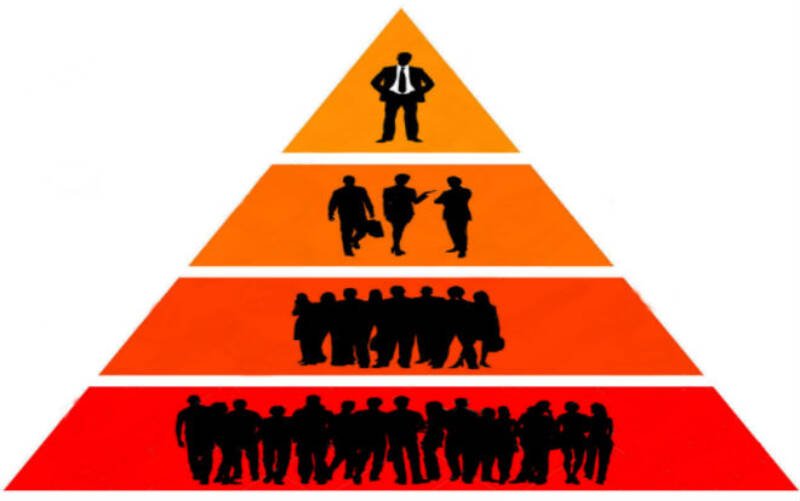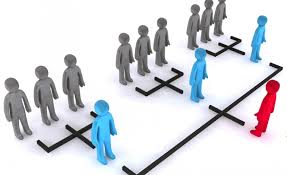Conversation 12: Internalizing the political dictator within the framework of the self
Greetings,
This is our 12th conversation.
As we all know, humans are social animals living in families of their own kind [and sometimes even in clans or tribes].
But even these families, be them as extended as they are, are integrated, after all, within a comprehensive and larger social matrix [for example, the country they are staying in]. Although our immediate experience suggests us that the norms of the family surrounding us often determine our attitudes and behavior, we claim that if we examine the matter in depth, it is the norms of the larger social group that often dictate our attitudes and actions and usually prevail over the attitudes and family norms.
Is it therefore true that the norms of the larger social group [whether in our time or in ancient times] generally prevail over the norms of the smaller group? If this is true, then perhaps we can declare a rule that the larger the group, the more its norms dictate the norms and attitudes of smaller groups contained within it.
Even if we accept this rule, it is not always true, especially for separatist, anarchist or avant-garde groups. However, even in these latter groups, alongside the customary attitudes and deviant norms, there are still ruling attitudes and norms of the larger group after these have been filtered by the norms of the deviant group.
We believe that this accepting the social norms of the extended group is critical to the social survival of the extended group and when it is not fulfilled, the extended society may come to disintegration.
So it seems then that there is usually a hierarchy of social groups related to size [but as mentioned this does not always apply to marginal groups], with the largest social group at the top, such as the state for example, whose norms and attitudes are usually dominant relative to those of the smaller groups contained within it. It also seems that we as social animals tend to mark who is the higher group in the hierarchy and conform to its norms even if we are not aware of it.
In other words, it seems that the hierarchical principle is extremely important. Indeed brain findings in humans show that there are brain representations for social hierarchy.
This time we choose to share with you first an intriguing article discussing the difference between different people in the extent to which they prefer a social dominance hierarchy over equality as a guiding principle of social structure, a phenomenon known as ‘social dominance orientation'.

Thus, in 2009, Joan E. Chiao and others [Joanne E. Chiao 1, Nee A. Mathur, Tokiko Harada, Trixie Lipke. Neural basis of preference for human social hierarchy versus egalitarianism. Ann N Y Acad Sci. 2009 Jun;1167:174-81.] demonstrated that the preference for hierarchical and unequal social relationships varies as a function of neural responses within a brain region known as the left anterior insula and the anterior cingulate cortex. These findings provide new evidence that preference for a social dominance hierarchy is associated with neural activity within brain regions associated with the ability to share and feel concern for the pain of others; This points to a neurobiological basis for social and political attitudes. The authors also discuss implications of these findings for social neuroscience research related to fairness, justice, and intergroup relations.
In the introduction to their article the authors state that "one of the oldest and most controversial dogmas throughout human history is the idea that certain social groups are fundamentally superior to others. Human history is replete with examples of intergroup conflict driven by an internal belief in a hierarchy of social dominance between groups and individuals. From the eugenics theory of Sir Francis Galton to the religious holy wars of the early first millennium A.D. However, recent centuries have also seen the emergence of prominent egalitarian philosophies, such as Marxist socialism and Rousseau’s liberalism.
These challenge the idea of the human social dominance hierarchy as the default mode by which groups and individuals should organize and function. Such heterogeneity of views reveals a spectrum of ideals concerning fundamental questions about the extent to which a hierarchy of social dominance or egalitarianism is preferable as a guiding principle in our collective social life.
"The social dominance hierarchy is a central principle underlying social structure throughout the animal kingdom. In many species and human cultures, dominant social groups and individuals in the hierarchy often have primary access to valuable resources (e.g., territory, food, mates) relative to those of lower social ranks. Modern social psychologists have discovered that people differ in the degree to which they prioritize their own social group in order to dominate others, a phenomenon known as 'social dominance orientation'. Across broad human cultures, 'social dominance orientation' is a stable and unique personality trait that predicts a wide range of social and political attitudes.
For example, people who prefer social hierarchy (and score higher on a 'socially dominant orientation') have been shown to support political ideologies that promote unequal social hierarchy (eg, political-economic conservatism), oppose public policies designed to weaken social inequality between groups (for example, civil rights, women's rights, gay and lesbian rights), and seek social roles that restore the hierarchy of dominance within social institutions (for example, law enforcement versus social work).
It should be noted that empathic concern is an important guiding factor for not preferring social hierarchy. People who demonstrate strong empathic concern, the ability to share and feel concern for other people's feelings, tend to prefer egalitarian and non-hierarchical social relations between groups. However, despite a solid understanding of how 'social dominance orientation' affects a wide range of cognition and social behavior, little is known about the neurobiological mechanisms underlying an individual's preference for a social dominance hierarchy versus equality."
The authors continue and point out that: due to the very widespread presence of social hierarchy among species and cultures, it is likely that the human ability to successfully navigate hierarchical social interaction stems from adaptive mechanisms in the brain that support the emergence and maintenance of social hierarchies within and between social groups. Given the social psychological evidence demonstrating that empathic concern is inversely related to social hierarchy preference, these researchers examined the possibility that neural regions associated with empathy are related to the preference or dislike of human social hierarchy."
The researchers used functional magnetic resonance imaging (fMRI) to examine the relationship between 'social dominance orientation' and empathic neural responses during pain perception in others. They hypothesized that the degree of preference for a social dominance hierarchy would vary significantly as a function of empathy-related neural responses when controlling for other known moderating factors, such as gender, age, and natural empathy.
In the discussion of the article, the researchers claim that "their findings show for the first time that individual differences in preference for a social dominance hierarchy predict neural response within the left anterior insula and anterior cingulate cortices. People who indicated a greater desire for a social dominance hierarchy showed less responsiveness in perceiving pain in others within anterior-insular brain regions critical for the ability to share and feel concern for the emotional salience of another person's misfortune. This modulation of neural responses within anterior insular brain regions by preference for social hierarchy and equality cannot be explained by other characteristics of empathy, such as gender, age, or natural empathy."
The activation of the anterior cingulate cortex in response to other people's pain observed in the presented study is consistent with several previous studies showing that the anterior cingulate cortex responds to one's own experience of pain, as well as to the knowledge that another person is in pain, a process thought to reflect a neural simulation of their own pain.
In addition to encoding the emotional qualities of pain, the anterior cingulate cortex has also previously been linked to self-regulation and conflict monitoring, a process by which people recognize when their usual response is inconsistent with the appropriate response given the current situation. A recent study showed that stronger conservatism is associated with less neurocognitive sensitivity in response to conflicts and greater persistence in habitual response patterns. In their study, the researchers show that people who prefer social hierarchy in social groups and individuals (eg, political-economic conservatism) show less neuro-emotional sensitivity to other people's pain. Thus, the activity within the anterior cingulate cortex reflects both emotional and cognitive processes that contribute to the neurobiological basis of political attitudes.
The researchers claim that these results, in addition to previous findings, "show that insula activity is related not only to aversion to inequity during economic exchanges (for example, whether a person receives a fair or unfair monetary allocation for himself or another person) reported in other studies, but more generally to aversion to any type of social inequality at the group level (eg, whether different social groups should have an equal right to vote or equal access to educational opportunities).
Because 'social dominance orientation' has been shown to be reliably related to social hierarchy preference in many different types of social systems (e.g., economic, political, religious, educational), the inverse relationship between empathic neural response and 'social dominance orientation' observed in the presented study suggests that the insular cortex is encoded for aversion to inequality in a wide variety of social situations, from decisions made during small-scale economic interactions to decisions involving support for social and political positions that shape large-scale social and political systems. The extent to which a person is able to share the emotional response to another person's pain or misfortune may subsequently guide their preference for political ideologies, public policies, and social roles that promote or weaken group social hierarchy and intergroup conflict."

So much for this article.
We’d like to analyze the situation of a truly dictatorial and distinctly hierarchical society [e.g. a country], with the dictatorial leader standing at the top of the pyramid. We argue that this figure of the political dictator [head of state for example] is internalized by the individual member of this extended group. This character often pushes aside the person's former Dictator Self [see previous conversation] and influences it’s attitudes and actions. In extreme cases this affects a person's behavior to the point of even confronting his own family [see as an example children who went against their parents in the Nazi regime].
In such a case, even people who consider themselves liberals, often change positions and adopt the dictator's positions. The question is why is this happening? Is it due to cognitive dissonance? Is there an innate tendency [perhaps archetypal according to Gustav Jung] to follow the leader as it’s customary in the primitive tribe or even or taking an example of animals living in herds, with the hierarchical leader as a head. Here we may argue that this may be an evolutionary response motivated by the survival needs.
Can such a phenomenon be modified? Can the individual in human society develop judgment and criticism regarding his social perceptions and an ability to withstand strong social influence? Withstand his tendency for obedience towards the dictatorial leader? Consciously influence the degree of internalization of the leader’s figure and prevent its becoming dominant within the directorate of internal figures of the "self"? Would it be possible to add an internalized character (let’s call it the "evaluator") who whose role is to evaluate social influendes and attitudes?
The question arises how to inoculate people against adoption and identification with dictatorial regimes.
In our attempt to answer these questions let’s try to learn from a group of people who immigrated for reasons of opposition to the dictatorial regime and are essentially a dissident group. It is important to understand what characterizes them compared to the public who accepted the positions of the dictatorial regime and the dominance of the dictatorial leader. We should mention that these people are under the same effects of the regime as the general public and sometimes even more so, since some of them are under excessive pressure, imprisonment, etc. of the regime. Despite that, these dissidents are not as affected by the dictatorship as is a majority of the population. This does not happen with them.
Do these individuals carry with them their own independent core that evaluates and weighs the events? Are some of them oppositional in their approach to state institutions in general, regardless of the type of regime? It seems that most of them are exposed and it is even important for them to be exposed to external informational and emotional support sources that are not of the regime. Can a support group outside the regime’s influence help with this? Baruch Spinoza, for example, was ostracized from the Jewish community in Amsterdam and lost contact with the society to which he belonged. What helped him survive was a support group of Christians and, essentially, the fact of joining another support group not associated with the primary support group that expelled him.
The question arises whether such a support group will also be possible as an imaginary group not existing today but assumed to exist in the future. Igor hypothesizes that Giordano Bruno and Copernicus who were persecuted by their contemporaries for their views may have joined (unconsciously of course) such an imaginary future group that strengthened them.
According to the above, a support group should be developed outside the regime that may even be futuristic and imaginary, for example one that is associated with an alternative, more egalitarian regime.
You should also be exposed to external sources of information.
It may even be possible to internalize figures of leaders and figures from alternative groups who opposed dictatorial regimes as an evaluative internalized internal figure. It seems that one should always be exposed to another supergroup, for example a state or other entity with a completely different approach in addition to the supergroup of the political dictatorship to whose influence a person is massively exposed.
Of course, it's not always that simple since sometimes the dictatorial government blocks access to other sources.
We suggest:
1] First, providing insight into the array of internal characters that build the self.
2] In light of this, formulating clear positions that include reliance on additional sources of information and openness to them and non-acceptance and even reservations about a situation where these sources are blocked.
3] Being exposed to another supergroup for example a country or other entity with a completely different approach in addition to the supergroup of the political state to whose views a person is massively exposed.
4] Also, in light of the above, use of a variety of means to increase empathy for groups that are at the bottom of the sociaty's hierarchical ladder.
What do you think ?
Best regards and see you in the next conversation,
Dr. Igor Salganik and Prof. Joseph Levine
 Prof. Joseph Levine, M.D. is an emeritus associate professor in the Division of Psychiatry, Faculty of Health Sciences, Ben Gurion University in Israel. Prof. Levine is a certified psychiatrist with clinical experience in controlled trials of adult psychiatric disorders and in psychotherapy. He was awarded a NRSAD independent investigator grant for the study of Creatine Monohydrate in psychiatric disorders -- mainly Schizophrenia. He resides and treats patients in Tel Aviv and all of central Israel.
Prof. Joseph Levine, M.D. is an emeritus associate professor in the Division of Psychiatry, Faculty of Health Sciences, Ben Gurion University in Israel. Prof. Levine is a certified psychiatrist with clinical experience in controlled trials of adult psychiatric disorders and in psychotherapy. He was awarded a NRSAD independent investigator grant for the study of Creatine Monohydrate in psychiatric disorders -- mainly Schizophrenia. He resides and treats patients in Tel Aviv and all of central Israel.
Leave a comment